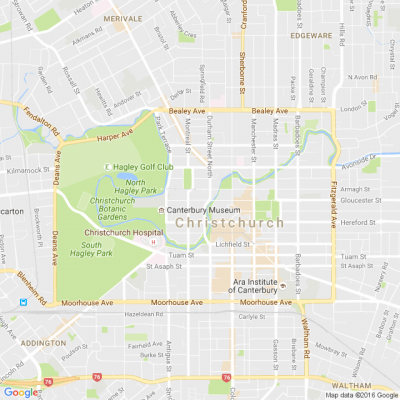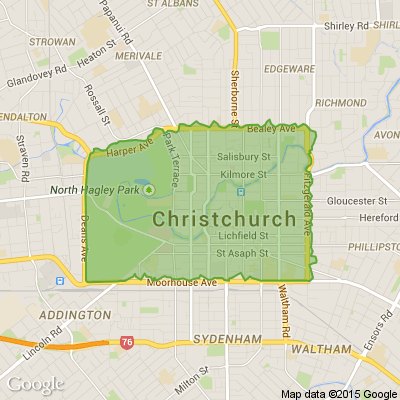Bid to move river away from town
From local democracy reporter Brendon McMahon:
An application has been lodged to divert the Waiho (Waiau) River at Franz Josef as part of the stalled $12.5 million north bank flood protection scheme.
The West Coast Regional Council is applying to itself for the temporary diversion of the river from below the State Highway 6 bridge to the glacial moraine, where the Waiho and Tatare riverbeds converge.
“The proposed diversion is to allow gravel extraction, and stopbank construction ... in dry riverbed and to prevent any potential scour of temporary works during the construction phase,” consultant Davis Ogilvie says on behalf of the council.
The applications relate to two separate flood protection works under the stage one north bank scheme: the Franz Josef stopbank and the Tatare River stopbank.
The application notes that the Waiho riverbed has been aggrading at 18cm a year in recent decades.
Flood protection improvement was deemed a priority following the 2016 flood causing after it caused $30m of damage. In March 2019 the state highway bridge was swept away following 400mm of rain was also a factor.
“A $24m package was approved by the Government in July 2020, as part of the Covid-19 economic stimulus package. The work included $18m for rock embankments on the north and south banks, and $3.8m to raise the level of the highway bridge.”
The regional council let a contract to Greymouth contractor MBD for the north bank work nearly a year ago.
The proposed river diversion is from the bridge down past the township and beyond the Westland District Council's wastewater treatment plant.
Temporary diversion of water for up to two years within the bed of the Waiho River is also sought.
The main project is currently stalled after the regional council failed to get affected party approval from the Scenic Circle Hotel Group.
In the latest application the three affected parties identified are the Department of Conservation (DOC), Fish and Game, and Te Rūnanga o Makaawhio.
DOC had already responded it had no concerns apart from the unprotected bank on the south side of the river below Canavans Knob.
DOC said the unprotected bank below Canavans had been “a real safety issue” for property and life in a number of recent floods.
“If the river is trained away from the north — then the probability of it being more likely to impact this bank is increased.”
The department said it would like to see armouring put in place and the Canavans stopbank upgraded significantly to mitigate the risk prior to the river diversion/training.
“This isn't so much a conservation concern as a community and Civil Defence issue,” DOC said.
Davis Ogilvie notes consent for the north bank scheme was independently lodged on March 3 last year and was currently on hold.
Likewise, an application for gravel extraction associated with the stopbanks construction had been independently lodged last month but was also on hold.
Consent to disturb the bed and banks of the Waiho River to the Tatare stopbank was granted in October 2022 along with a discharge consent for incidental sediment into the Waiho River from the Tatare stopbank construction.
Land use consent had already been sought to raise all existing flood protection banks on the north side by 2m, along with consent to extract gravel from the dry riverbed for raising the existing stopbanks and extending them.
⚠️ DOGS DIE IN HOT CARS. If you love them, don't leave them. ⚠️
It's a message we share time and time again, and this year, we're calling on you to help us spread that message further.
Did you know that calls to SPCA about dogs left inside hot cars made up a whopping 11% of all welfare calls last summer? This is a completely preventable issue, and one which is causing hundreds of dogs (often loved pets) to suffer.
Here are some quick facts to share with the dog owners in your life:
👉 The temperature inside a car can heat to over 50°C in less than 15 minutes.
👉 Parking in the shade and cracking windows does little to help on a warm day. Dogs rely on panting to keep cool, which they can't do in a hot car.
👉 This puts dogs at a high risk of heatstroke - a serious condition for dogs, with a mortality rate between 39%-50%.
👉 It is an offence under the Animal Welfare Act to leave a dog in a hot vehicle if they are showing signs of heat stress. You can be fined, and prosecuted.
SPCA has created downloadable resources to help you spread the message even further. Posters, a flyer, and a social media tile can be downloaded from our website here: www.spca.nz...
We encourage you to use these - and ask your local businesses to display the posters if they can. Flyers can be kept in your car and handed out as needed.
This is a community problem, and one we cannot solve alone. Help us to prevent more tragedies this summer by sharing this post.
On behalf of the animals - thank you ❤️

Worst Xmas ever?
There's a a lot of planning that goes into Christmas day and sometimes things just don't go to plan. But it can be a good thing - a family mishap or hilarious memory that you can laugh about in Christmases to come.
Whether you burnt the dinner or were stranded at an airport...
Share your Christmas mishaps below!








 Loading…
Loading…





















